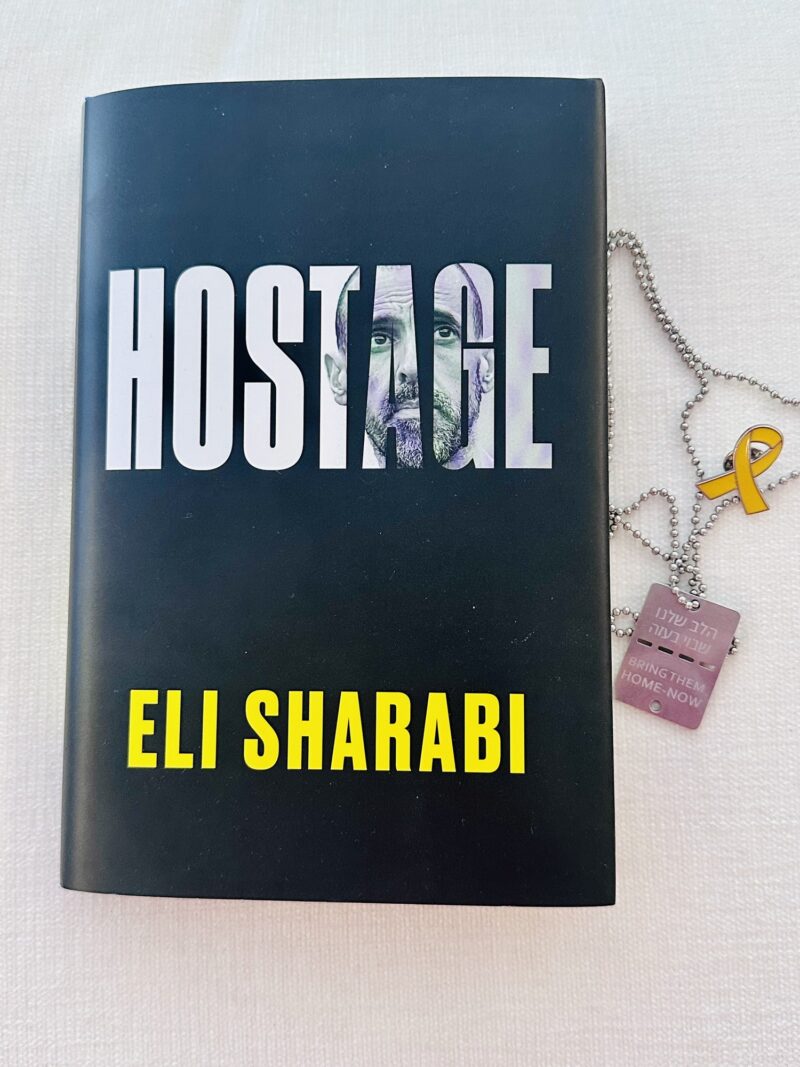Hostage by Eli Sharabi: About the Book
“I refuse to let myself drown in pain. I am surviving. I am a hostage. In the heart of Gaza. A stranger in a strange land. In the home of a Hamas-supporting family. And I’m getting out of here. I have to. I’m getting out of here. I’m coming home.”—Eli Sharabi
On October 7, 2023, Hamas terrorists stormed Kibbutz Be’eri, shattering the peaceful life Eli Sharabi had built with his British wife, Lianne, and their teenage daughters, Noiya and Yahel. Dragged barefoot out his front door while his family watched in horror, Sharabi was plunged deep into the suffocating darkness of Gaza’s tunnels. As war raged above him, he endured a grueling 491 days in captivity, all the while holding onto the hope that he would one day be reunited with his loved ones.
Eli Sharabi’s story is one of hunger and heartache, of physical pain, longing, loneliness and a helplessness that threatens to destroy the soul. But it is also a story of strength, of resilience, and of the human spirit’s refusal to surrender. It is about the camaraderie forged in captivity, the quiet power of faith, and one man’s unrelenting decision to choose life, time and time again.
In the first memoir by a released Israeli hostage, and the fastest-selling book in Israel’s history, Sharabi offers a searing firsthand account of survival under unimaginable conditions—starvation, isolation, physical beatings, and psychological abuse at the hands of his captors.
The Review:
Hostage by Eli Sharabi is 195 pages of pure devastation, but a must read for people who have either followed his story or who don’t know about October 7th. There are so many powerful moments in the book. It was strictly about Sharabi being taken hostage on October 7th, his time both above ground and in the tunnels in Gaza with a brief nod to his release and finding out the horrific news that his wife, daughters and brother were all killed.
Since the book matches the title, there are many unbearable moments to read. We all knew about Sharabi’s life through the news after October 7th. Many of us knew a secret that he did not during his time in Gaza – that his wife and daughters were killed in Kibbutz Be’eri on October 7th and his brother died in captivity. To hear first hand, in his own words, that he expected to come home to his family, and that is one of the things that kept him going, is, yes, devastating. To also learn that his captors let him believe that he would see them again is torturous.
The spare words keep the pace going. Sharabi’s strength makes his story not only readable, but visceral. You can feel yourself walking down the ladders deep into the tunnel below with him. You understand his focus on getting back to his family. You imagine his hunger as he and the three hostages that he is held with, Alon Ohel, Or Levy, and Eliya Cohen share small bits of food.
If you are concerned about the content, you should be. This is not an easy read, but if Hostage by Eli Sharabi is difficult to read, it is only because he brings to life the conditions that he was kept in with such vivid detail.
Although you hear about the horrors that he faced, you also hear about faith and hope. You feel his strength when he says, “There is no more regular Eli. From now on I am Eli the survivor.” A survivor he is. While Hostage emerges from one of the world’s most politicized conflicts, its power lies in stripping all of that away and reminding us of what’s universal: the will to live, the hope to see loved ones again, and the human need to endure.
Hostage by Eli Sharabi is a must read, and it is, in my opinion, not just the best book of 2025, but the must read of the last decade. It should be on everyone’s reading list. It has been compared to Elie Wiesel’s Night and Laura Hillenbrand’s Unbroken. I can understand why.



